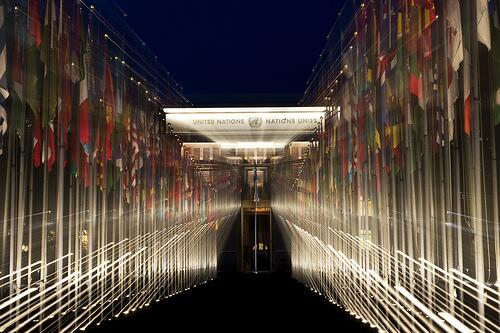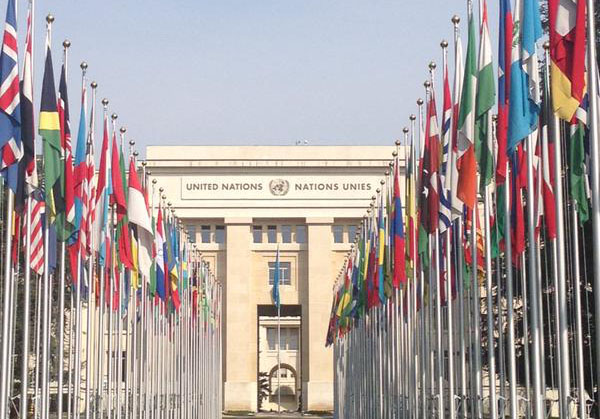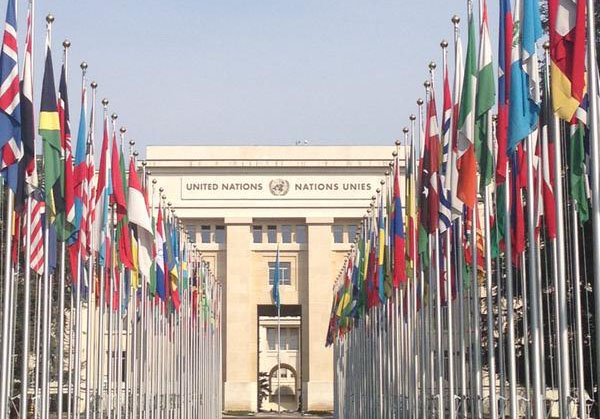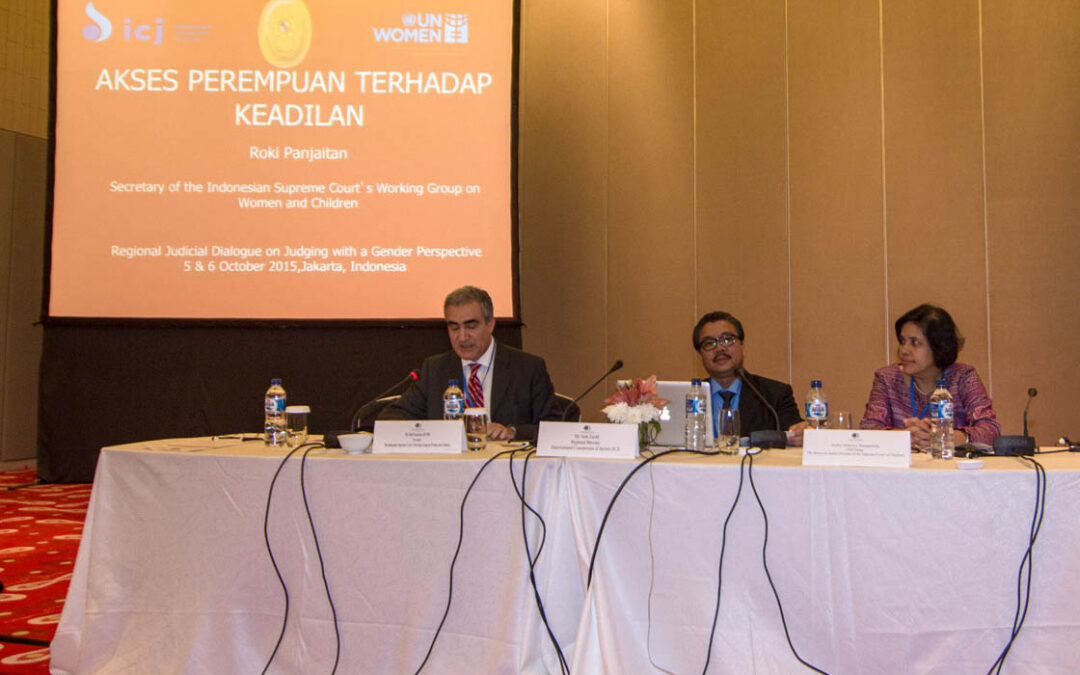
Feb 11, 2016
The ICJ today joined other NGOs in calling for the UN Human Rights Council to extend the mandate of the UN Special Rapporteur on Myanmar.
The letter sets out observations and recommendations for the extension, and concludes:
“Our organizations believe that as long as ongoing and systemic human rights issues have not been addressed by the Government of Myanmar, the Human Rights Council should maintain its ability to monitor the human rights situation in the country, work with the country’s authorities on a concrete reform agenda, and work towards the establishment of an OHCHR country office with a full mandate. Acting under its agenda item 4, the Council should therefore, at a minimum, extend the mandate of the UN Special Rapporteur on the situation of human rights in Myanmar, request her to report on benchmarks needed for systemic change, and continue to review the situation of human rights in the country. Any failure on the part of the Council in this regard may seriously compromise and derail what has been achieved so far since the beginning of the reform process in 2010.”
The full text of the joint open letter can be accessed here (pdf): Myanmar-UN-Advocacy-OpenLetter-2015-ENG

Dec 16, 2015 | Advocacy, Events
The ICJ joins other non-governmental organisations in co-sponsoring “Escalation of Violence in Burundi: Human rights defenders voices from the ground”, a side event to the Human Rights Council’s special session on Burundi, 17 December 2015.
The event will take place Thursday 17 December – 9.00-10.00 am in Room XII, Palais des Nations, Geneva
Panelists:
Mr Pierre Claver Mbonimpa, Association for the Protection of Human Rights and Incarcerated Persons (APRODH)
Ms Margaret Barankitse, Maison Shalom
Mr Anschaire Nikoyagize, Ligue ITEKA
Ms Carina Tertsakian, Human Rights Watch
The event will be moderated by Nicolas Agostini of FIDH.
The event will be webcast live by the International Service for Human Rights (ISHR).
Follow on twitter using the hash-tag #BurundiHRDs
A flyer for the event is available here: Burundi-UNHRC-Advocacy-SideEvent-2015

Nov 10, 2015
The ICJ today joined other organisations in calling for a special session of the UN Human Rights Council to address the rapidly deteriorating human rights situation in Burundi.
The joint letter cited, among other concerns, continuing unlawful killings and other human rights violations and abuses, as well as the use of incendiary language by a number of high-level officials in the last two weeks. The organisations fear that Burundi may be on the verge of widespread violence. The UN High Commissioner for Human Rights has expressed extreme concern about the situation.
On 6 November, the body of Welly Nzitonda, the son of prominent human rights defender Pierre Claver Mbonimpa, was found dead a few hours after he was arrested in the Mutakura neighborhood of Bujumbura where protests have taken place. On 3 August, Mr. Mbonimpa was himself shot in the face and neck. He was forced to seek medical treatment abroad. His son-in-law, Pascal Nshimirimana, was shot dead outside his home in Bujumbura on 9 October.
The open letter can be downloaded here (in english, PDF format): Burundi-UN-OpenLetter-2015
(en français): Burundi-UN-OpenLetter-2015-FR

Nov 10, 2015 | Plaidoyer
Appel à la tenue d’une session spéciale du Conseil des droits de l’Homme afin de contribuer aux efforts onusiens et régionaux visant à prévenir la commission d’atrocités au Burundi
Lors de sa dernière session ordinaire, le Conseil des droits de l’Homme a exprimé de vives inquiétudes quant à la situation des droits humains au Burundi et a démontré sa capacité à répondre à une situation d’urgence en matière de droits humains en adoptant la résolution 30/271, qui lui permettra de discuter de la situation au Burundi à l’occasion de dialogues interactifs devant se tenir lors de ses trois sessions ordinaires en 2016.
Malheureusement, le Gouvernement du Burundi a échoué à répondre à l’appel à la retenue envoyé par le Conseil (notamment son appel à « s’abstenir de toute action susceptible d’exacerber les tensions au Burundi »), et la détérioration rapide de la situation des droits humains dans le pays ne permet pas au Conseil d’attendre sa trente-et-unième
session (mars 2016) pour prendre des mesures additionnelles afin de prévenir la commission d’atrocités au Burundi.
Suite dans le PDF ci-dessous:
Burundi-UN-OpenLetter-2015-FR (Lettre complète en PDF)

Oct 6, 2015 | News
Judges and representatives of judicial training institutions from 9 countries across Southeast Asia gathered in Jakarta, Indonesia, to discuss how judicial decision-making can be further strengthened from a gender perspective.
A two-day event (5-6 October 2015), this judicial dialogue, entitled Regional Judicial Dialogue on Judging with a Gender Perspective, was organized by the ICJ, in collaboration with the Supreme Court of Indonesia and UN Women.
Participants discussed key topics such as initiatives of various courts in Southeast Asia that promote and protect women’s human rights, what are gender stereotypes and how gender stereotyping could be avoided in judicial decisions.
Speakers from the Supreme Court of Mexico were invited to speak about the initiative taken by the judiciary in the country to establish a protocol on judging with a gender perspective.
Senior judges from courts in Southeast Asian countries attended the event: Justice Dr. Takdir Rahmadi of the Supreme Court of Indonesia, Justice Suntariya Muanpawong, Chief Judge of the Research Division of the Supreme Court of Thailand; Justice Teresita De Castro of the Supreme Court of the Philippines, Justice Maria Natercia Gusmao Pereira of the Court of Appeal of Timor Leste; and Ms. Natalia Calero Sanches and Ms. Macarena Saez of the Mexican Supreme Court.
This dialogue is aimed at strengthening the participants’ ability to make decisions based on the rights to equality and freedom from discrimination.
UN Women also launched an online interactive platform that seeks to enhance dialogue among judges, prosecutors, court personnel, judicial training institutions, women’s machineries, scholars and other experts in the region.
The platform called, “Equality for All: community of change makers”, will enable users to access tools such as e-discussion forums, blogs and quick fact sheets that offer tailored learning solutions.









